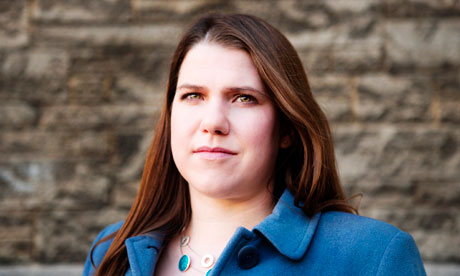
Don't fall into the "trap" of telling your children that they're beautiful, women's minister Jo Swinson has advised. Apparently, remarking to young Jessie that she looks the bee's knees in her latest fancy dress outfit, or complementing her on a new haircut, runs the risk of reinforcing the idea that image is everything. Instead, says Swinson, we should be high-fiving Jessie on her skill with a jigsaw; though only, one assumes, if she's able to piece together all those irritating blue sky pieces.
What this approach to boosting your child's self-esteem fails to address, however, is that children will take an interest in both how they look and what other people say about them in terms of their appearance, good or bad. We live in a society where those in the public eye are constantly criticised in the media for their appearance. Rather than ignoring the fact that we all get judged on how we look, we should be encouraging our children to have a positive opinion of themselves and their appearance. Beauty is, after all, subjective.
I'm not proposing that we lavish compliments on our kids in the manner of a One Direction fan composing frantic love letters to Harry Styles. I'm advocating balance and encouraging children in all the aspects of life that matter to them, from their education, to social skills, and how they feel about themselves. "Beautiful" is not inherently sexual; it is not intrinsically tied up with misogynistic viewpoints, and it is not about trying to achieve impossible ideals pushed on us by the beauty and fashion industries. Feeling beautiful goes hand in hand with self-acceptance, which is something that any parent would want for their child.
Of course, it's crucial that children don't become consumed by their appearance. As Swinson herself says, for people to feel obliged to spend two hours in the morning getting ready is not OK, but it is also almost certainly not the result of the odd compliment on their appearance from their parents. She also makes the very valid point that adults need to watch what they say in front of children when criticising their own bodies, to prevent their children copying the negative rhetoric.
We need to be doing everything possible to counteract the damage done to our children's self-esteem by the barrage of appearance-based criticism that celebrities endure in the media, and which men and women are encouraged to emulate with reference to their bodies. Our children are growing up in a culture where zooming in on a pop star's cellulite is a news story, or where an actor's weight gain makes the front page. Pretending that appearances aren't judged is impossible, so let's do our best to make sure our children have the thickest armour possible by killing body image woes with kindness. Top level jigsaw skills are encouraged, but not essential.

